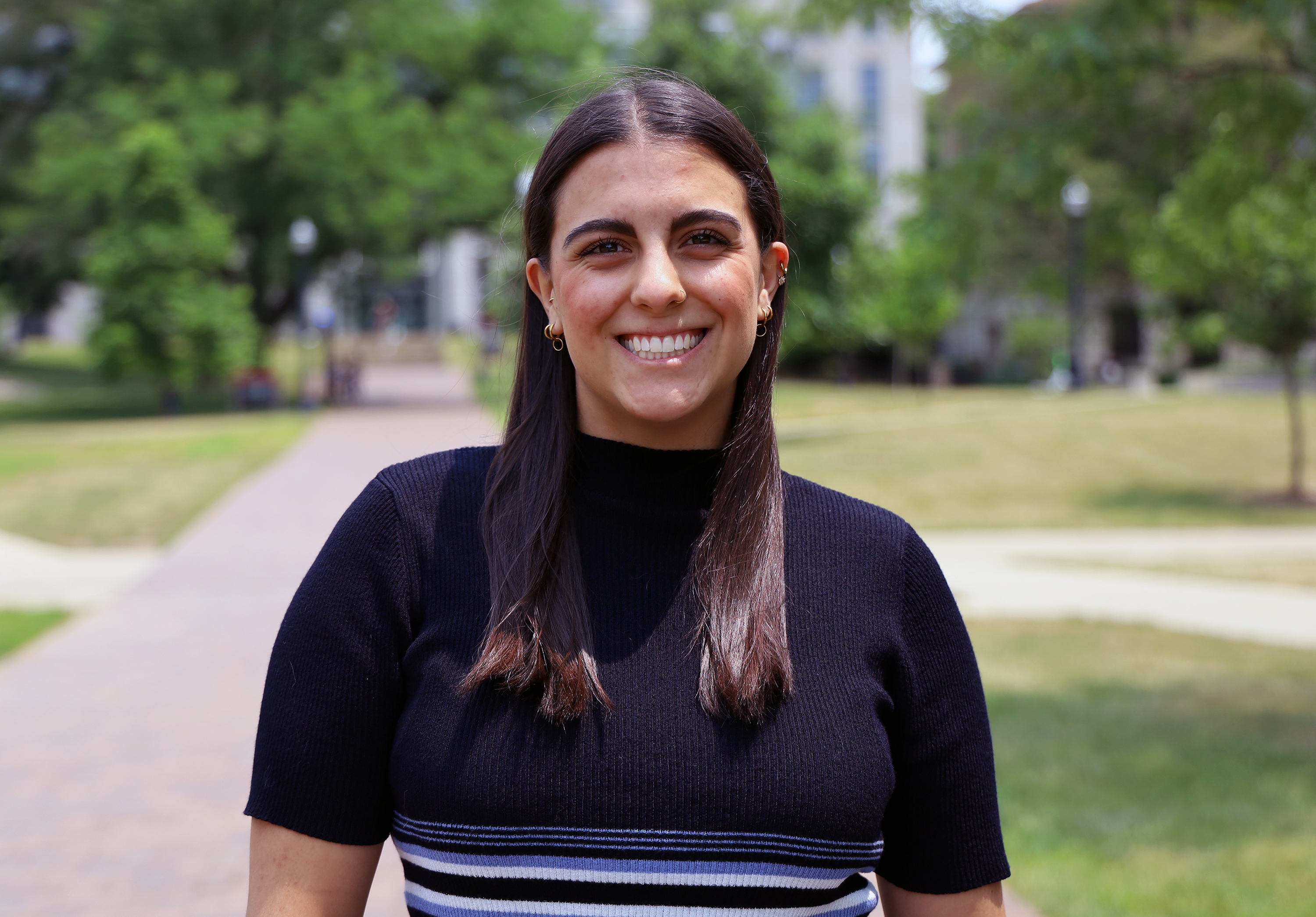Public Health Buckeyes: Emma Sakulich
MPH student’s work combines interests in policy, community engagement, public health
By Kristen Mitchell

Meet Emma Sakulich, a MPH health behavior and health promotion student spending her summer assisting with a project designed to prepare older adults for extreme weather emergencies.
Question and Answer
You majored in public leadership, management and policy as an undergraduate. What made you want to pursue an MPH?
In my undergraduate program, you had to pick a policy area concentration, so I chose public health. As much as I loved studying policy, I slowly started to realize my favorite classes were my public health classes. After taking PUBHBHP 3510: Role of Behavior in Public Health, I knew health behavior and health promotion was the path I was most passionate about and decided to further my studies with an MPH. My undergraduate major and my current graduate degree intersect so much, and I am so grateful to have been a part of both programs.
Can you tell us about the work you’re doing this summer with the College of Social Work’s Age-Friendly Innovation Center?
I am working on Project W.A.R.M, which is an advocacy project that is helping older adults living in affordable housing become more prepared for extreme weather emergencies. The start of the project is research focused, with qualitative data coming from surveys and focus groups to understand the firsthand experiences of residents with preparedness and emergencies. Based on the results of the study, the team will work further with the residents, service coordinators, housing management, local policymakers and additional stakeholders to help create an older-adult preparedness toolkit for future climate emergencies.
How has the work you’ve done with the Age-Friendly Innovation Center given you a deeper understanding of the public health concepts you’ve learned in the classroom?
It has allowed me to apply what I have learned in the classroom to real-world public health scenarios. The main focus of my MPH specialization is program planning and implementation, and that is exactly what we are doing with Project W.A.R.M. I get to apply different concepts such as health literacy, wealth inequality, behavioral theories and more to what I am doing in real-world practice, which is super rewarding.
What other public health issues are you passionate about?
I am passionate about children’s health, wealth inequality, health education and the intersection between housing and health outcomes.
What are your goals for the future?
I would love to work for Nationwide Children’s Hospital or Franklin County Public Health as a health educator. My focus would ideally be on working with low-income families and children. Long-term, my goal is to run for local office and apply my experience in community work to policy and advocacy. There are so many options in the field of public health, and I am excited to see where my degree brings me.
What do you hope for the future of public health?
I hope the field of public health continues to grow and that more professionals, both new and experienced, decide to pursue this path. Additionally, I wish to see even more intersection and collaboration between traditional health care delivery and public health advocacy to help create a more equitable future for the whole population.
What advice do you have for students interested in pursuing a MPH?
Approach your MPH with an open mind and understand that the beauty of this field is the diversity of its options. There is so much you can do with an MPH, no matter the specialization you pick, and if you come in with an open mind, you have a whole world of choices for how you want to make a difference in this field.
About The Ohio State University College of Public Health
The Ohio State University College of Public Health is a leader in educating students, creating new knowledge through research, and improving the livelihoods and well-being of people in Ohio and beyond. The College's divisions include biostatistics, environmental health sciences, epidemiology, health behavior and health promotion, and health services management and policy. It is ranked 22nd among all colleges and programs of public health in the nation, and first in Ohio, by U.S. News and World Report. Its specialty programs are also considered among the best in the country. The MHA program is ranked 5th and the health policy and management specialty is ranked 21st.